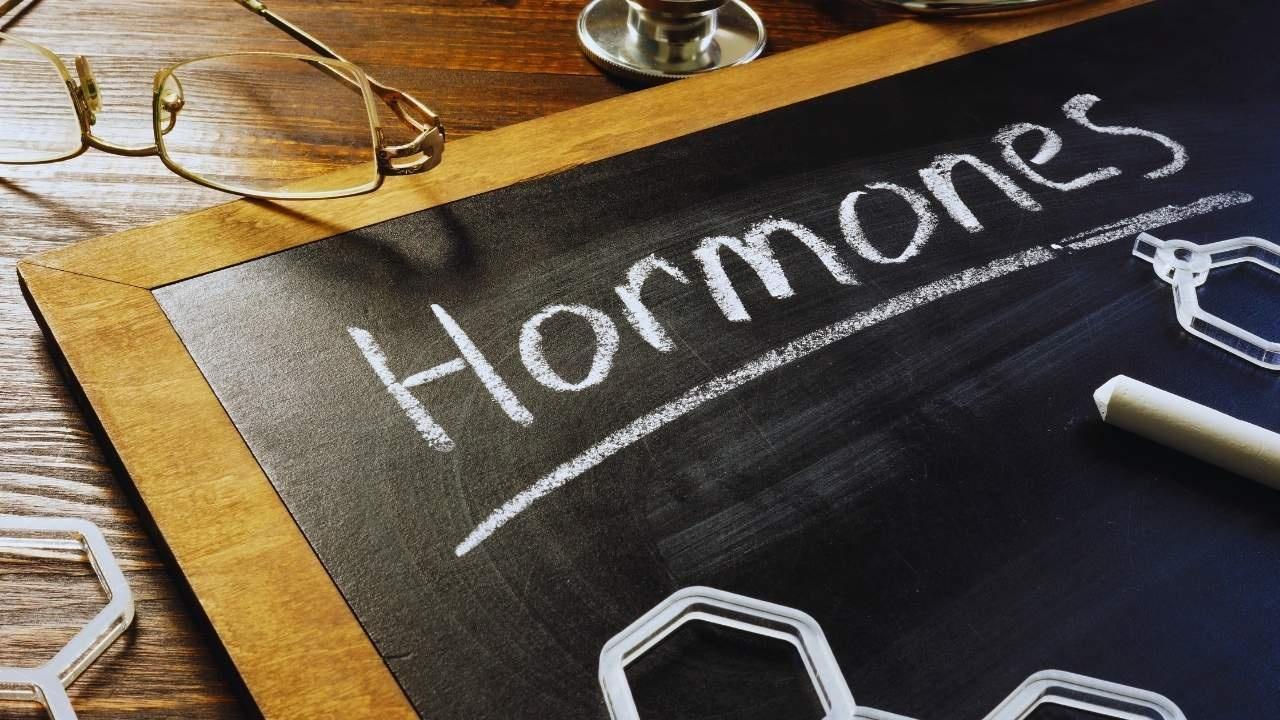
Post by : Anees Nasser
Hormones subtly govern every facet of daily existence—impacting energy, sleep, appetite, mood, and even stress responses. Often, imbalances remain hidden, only surfacing when they disrupt daily activities. Individuals might attribute changes to stress or ageing, but heeding these signs is crucial.
By grasping the fundamentals of hormonal health, individuals can recognize bodily signals, understand common ailments, and know when to pursue professional care. Hormonal well-being transcends mere medical terminology; it underpins holistic health.
Hormones act as chemical messengers produced by different glands within the body. They travel through the bloodstream, instructing various organs on their actions. The primary glands involved include:
• Thyroid gland
• Adrenal glands
• Pancreas
• Ovaries (in women)
• Testes (in men)
• Pituitary gland
• Pineal gland
Each hormone serves specific functions, such as managing metabolism, growth, reproductive health, and stress response. Minor imbalances can lead to significant bodily changes.
Variations in hormone levels can emerge from multiple sources—some natural, others influenced by lifestyle or medical conditions.
• Chronic stress
• Inadequate sleep
• Poor diet
• Sedentary lifestyle
• Overconsumption of caffeine or alcohol
• Sudden weight changes
• Age-related transitions (puberty, pregnancy, menopause)
• Genetic predispositions
• Disorders impacting glands
• Some medications
Identifying the root causes is essential for effective treatment.
Hormonal symptoms tend to develop gradually and may not seem interrelated. Here are common signs across several categories.
The thyroid is crucial for regulating metabolism and energy levels.
• Fatigue
• Weight gain
• Dry skin
• Hair loss
• Sensitivity to cold
• Irregular or heavy menstrual cycles
• Constipation
• Emotional fluctuations
• Unexplained weight loss
• Anxiety or irritability
• Fast heartbeat
• Excessive sweating
• Light periods
• Sleep disruptions
• Heat sensitivity
The pancreas produces insulin to manage blood sugar levels.
• Increased hunger
• Abdominal weight gain
• Fatigue after meals
• Dark patches of skin (especially around the neck and armpits)
• Difficulty in weight loss
Female hormones like estrogen and progesterone play crucial roles in menstrual and reproductive health.
• Irregular menstrual cycles
• Severe PMS symptoms
• Acne outbreaks
• Decreased libido
• Unexpected weight fluctuations
• Breast tenderness
• Hot flashes
• Mood variances
• Thinning hair
• Unwanted facial hair
Testosterone impacts energy, muscle mass, mood, and reproductive functions in men.
• Decreased energy
• Muscle loss
• Lower libido
• Mood changes
• Thinning hair
• Weight gain
• Sleep issues
Cortisol is key in how the body manages stress, with both excessive and deficient levels causing disruption.
• Anxiety
• Fatigue
• Cravings for salt
• Elevated blood pressure
• Accumulation of belly fat
• Sleep difficulties
• Dizziness
• Afternoon tiredness
• Cravings
• Low mood
• Weakness
Melatonin regulates your sleep cycle.
• Difficulty falling asleep
• Frequent awakenings
• Daytime drowsiness
• Trouble maintaining alertness
Before turning to testing or treatment, adjustments to daily habits often yield significant improvements.
• Getting 7-8 hours of sleep
• Consuming balanced meals
• Cutting back on processed and sugary foods
• Staying physically active
• Reducing stress
• Hydrating well
• Avoiding extreme dieting
• Sticking to a regular schedule
Even minor shifts can stabilize hormonal changes.
If symptoms disrupt daily life or persist for extended periods, testing is critical. Given the complexity of hormones, self-diagnosis can be misleading. Accurate testing can pinpoint the actual issues rather than relying on assumptions.
Doctors typically avoid administering all hormone tests simultaneously, focusing instead on specific symptoms. Here are the tests most frequently recommended.
Assessing the functionality of the thyroid.
• TSH
• Free T3
• Free T4
These tests assist in diagnosing thyroid disorders.
Evaluating how the body processes glucose.
• Fasting blood sugar
• HbA1c
• Fasting insulin
• Glucose tolerance
These tests are valuable for assessing diabetes risk and conditions like PCOS.
These tests analyze menstrual and fertility health.
• Estrogen
• Progesterone
• FSH
• LH
• Prolactin
• AMH
• Testosterone
These tests can identify issues related to PCOS, menopause, ovulation disturbances, and hormonal imbalances.
Tests are commonly suggested for symptoms like fatigue or diminished libido.
• Testosterone
• FSH
• LH
• Prolactin
Assessing levels of stress hormones.
• Cortisol (morning sample)
• ACTH
• 24-hour urine cortisol (if necessary)
Certain nutrients significantly affect hormonal functions.
Key examples are:
• Vitamin D
• Vitamin B12
• Iron
• Magnesium
Deficiencies might mimic or exacerbate hormonal disorders.
Hormone supplements must only be used under medical supervision. Improper use can lead to:
• Mood fluctuations
• Hair loss
• Inconsistent periods
• Weight fluctuations
• Sleep problems
• Long-term health repercussions
Even herbal or “natural” supplements can disrupt hormonal balance if taken without consultation. Always seek professional guidance.
Not all hormonal fluctuations signify imbalances; many are standard across different stages of life.
Teenagers endure significant hormonal changes that result in:
• Mood swings
• Skin alterations
• Growth spurts
• Onset of menstruation in girls
Pregnancy entails natural hormonal adjustments, resulting in:
• Nausea
• Changes in appetite
• Fluctuations in mood
• Skin modifications
These changes are typical unless extreme.
Post-birth, hormones can fluctuate significantly, influencing:
• Mood
• Sleep patterns
• Breastfeeding
• Energy levels
Postpartum depression is a real phenomenon that requires attention.
During menopause and the preceding phase, estrogen and progesterone levels decrease.
Symptoms may encompass:
• Hot flashes
• Irregular cycles
• Sleep disturbances
• Emotional shifts
In midlife, testosterone levels decline gradually, leading to:
• Fatigue
• Decreased strength
• Mood swings
• Sleep issues
These transitions are part of life yet can be managed with proper support.
Consult a healthcare expert if:
• Symptoms linger for more than a few weeks
• You experience painful or exceptionally heavy periods
• Mood changes become overwhelming
• Unexplained weight changes occur
• Your skin or hair experiences sudden changes
• You face persistent fatigue
• Feelings of anxiety or sadness are excessive
• Sleep does not come easily
• You notice a sudden drop in libido
• Your menstrual cycle is highly irregular
Early intervention can prevent complications and lead to quicker resolutions.
To maximize the benefit of your visit:
• Document your symptoms and their onset
• Track menstrual cycles if relevant
• Log your energy levels
• List all medications and supplements
• Mention significant stressors or lifestyle alterations
This preparation allows the healthcare provider to gain a comprehensive understanding.
Therapies are customized based on the underlying cause and may entail:
• Lifestyle modifications
• Nutritional changes
• Stress management techniques
• Medical prescriptions
• Necessary hormone therapies
• Treatment for any underlying health issues
The objective is not solely symptom alleviation but achieving a state of balance.
Hormonal health significantly impacts energy, mood, metabolism, sleep, and overall quality of life. While recognizing imbalances can feel daunting, they are manageable through awareness, timely diagnosis, and consistent care. Identifying signs, understanding testing options, and consulting medical professionals leads to effective management and improved hormonal balance.
Your body transmits signals constantly. Being attuned to these cues and responding accordingly safeguards long-term health and enhances your emotional and physical wellness.
This article offers general information and is not a substitute for medical advice. Seek the counsel of qualified healthcare professionals if experiencing hormonal issues.










Covid Vaccine Hesitancy Declines as Most Individuals Choose Vaccination
A comprehensive study reveals that doubts about Covid vaccines have lessened, with the majority of h

Prashant Tamang, Indian Idol 3 winner, Dies in Sleep
The passing of Prashant Tamang, a cherished singer, has saddened fans worldwide as tributes pour in

Top Ranked Aryna Sabalenka Faces Australian Open 2026 Without a Title to Defend
Aryna Sabalenka enters the Australian Open 2026 with pressure as the top seed, yet without a defendi

Merz Predicts EU-India Trade Agreement Finalization Soon
German Chancellor Merz hints at a potential EU-India free trade agreement signing by month's end, fo

Japan's Security Aid to Southeast Asia Hits $147 Million
Japan's OSA budget surges to $147M, enhancing military ties with ASEAN nations to fortify security a

Eruption of Mount Semeru: Ash Rises to 2 km, Pyroclastic Flow Reaches 5 km
Mount Semeru erupted at 10:25 p.m. local time, producing a 5 km pyroclastic flow with ash rising 2 k